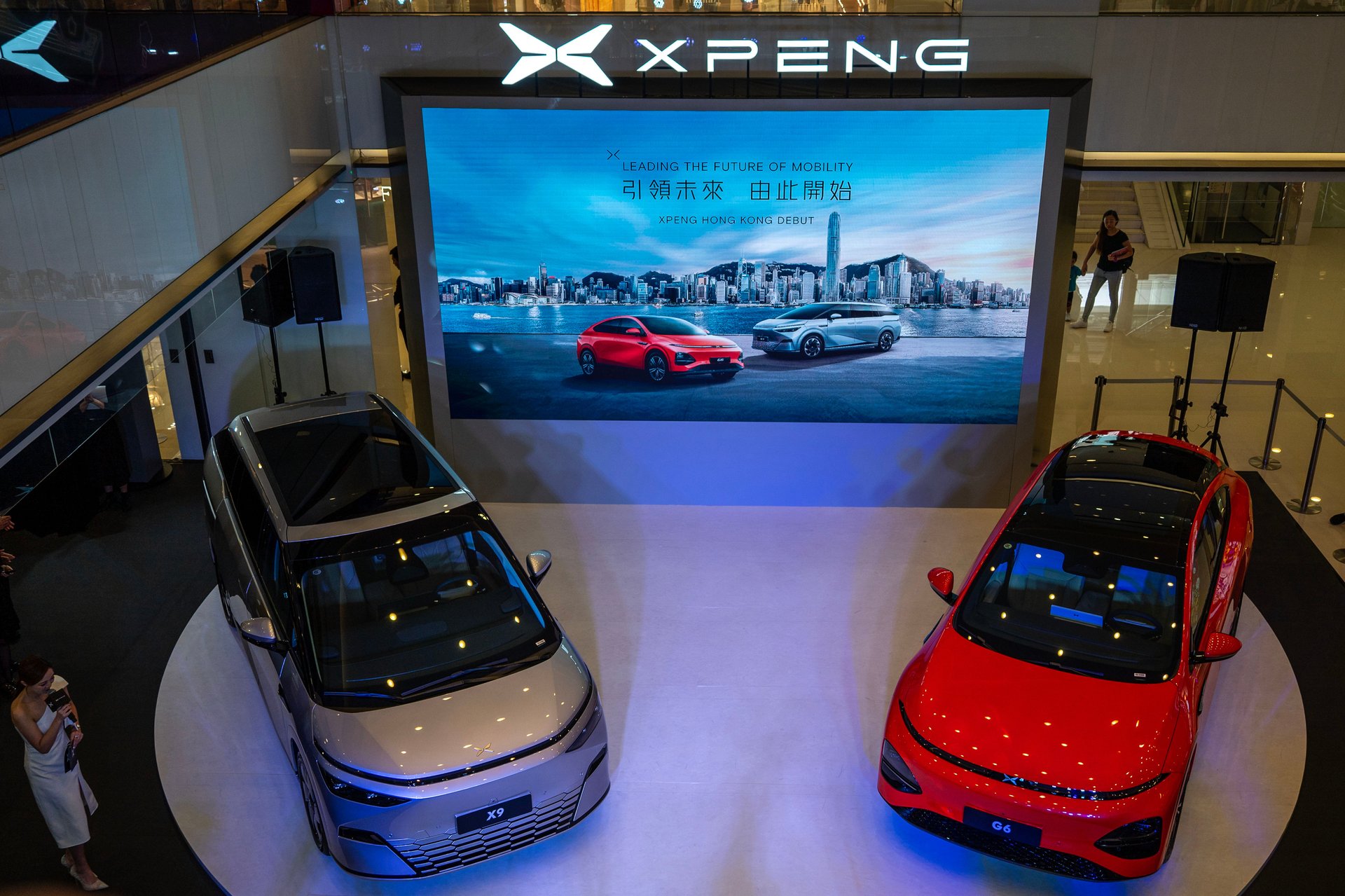A Chinese EV giant says Biden's tariffs will hurt climate goals
The U.S. quadrupled existing tariffs on imports of Chinese electric cars on Tuesday

Xpeng Motors, one of China’s largest electric vehicle companies, on Friday said the United States’ tariffs on EVs and solar cells will make climate goals more difficult to achieve.
Suggested Reading
Xpeng co-President Brian Gu told media that the tariffs will increase costs for China’s EV makers in the future, Reuters reported. U.S. President Joe Biden’s administration on Tuesday announced plans to quadruple tariffs on Chinese EVs from 25% to 100%. Existing tariffs on solar cells will double from 25% to 50%.
Related Content
China aims to reach its carbon emissions peak before 2030 and become “carbon neutral” by 2060. The U.S. wants to reduce greenhouse gas emissions by 50% from 2005 levels by the end of the decade, and reach net-zero emissions by 2050.
“This has no impact on Xpeng Motors at the moment, but for such a large market as a whole, I hope that in the future it can become more open, allowing global products to enter and compete,” Gu said in Hong Kong, where Xpeng launched two new EVs on Friday. China’s Commerce Ministry has said the tariffs will “seriously impact the atmosphere of bilateral cooperation.”
The tariffs increase is also thought to be more symbolic than practical. Chinese EV makers largely avoid exporting to the U.S. due to existing tariffs imposed by former President Donald Trump’s administration.
One of the few exceptions is Polestar, a Sweden-based luxury EV maker that is owned by China’s Geely. Zeekr, a premium EV brand owned by Geely, went public in New York last week. Geely exported 2,217 cars to the U.S. between January and March.
Gu’s comments came as Xpeng and Malaysia’s Sime Darby Motors showcased the G6 electric SUV and the X9, a seven-seater smart EV. The models are Xpeng’s first foray into Hong Kong as the company expands beyond China’s ever-crowded auto market, which is the largest in the world. Both domestic and foreign automakers — including Honda Motor Co. and Nissan Motor co. — have struggled in recent months as a price war rages on.
Nio CEO William Li stated on Thursday that China’s market — home to as many as 123 automakers building EVs — has “already consolidated to 20-30 active players” and that the consolidation “will continue but will not be very severe.”
Other Chinese EV makers have already entered Hong Kong’s market, including BYD — China’s biggest seller of electric cars — and Great Wall Motor. Many EV makers, including Chery and BYD, have announced plans to enter — or further entrench themselves — in European markets.
Gu said Friday that Xpeng is assessing the level of European Union tariffs that would require it to shift production overseas. In September, the E.U. announced an investigation into Beijing’s subsidies for domestic manufacturers of electric cars, which may result in additional tariffs. Gu has previously said that Xpeng may consider producing its cars outside of China as Europe becomes more critical of Chinese exports.
Chinese car exports have surged in recent years; Japan — previously the world’s top exporter of cars since 2017 — lost that title to China in 2023. About 60% of global EV sales come from China’s car industry, according to the International Energy Agency, an intergovernmental group.
China’s Minister of Commerce Wang Wentao has called the U.S. and E.U.’s “accusations” about capacity “groundless,” according to the government-run Xinhua News Agency. Rather, Wang aruges, China’s EVs are competitive because of technological innovation and its supply chains.
